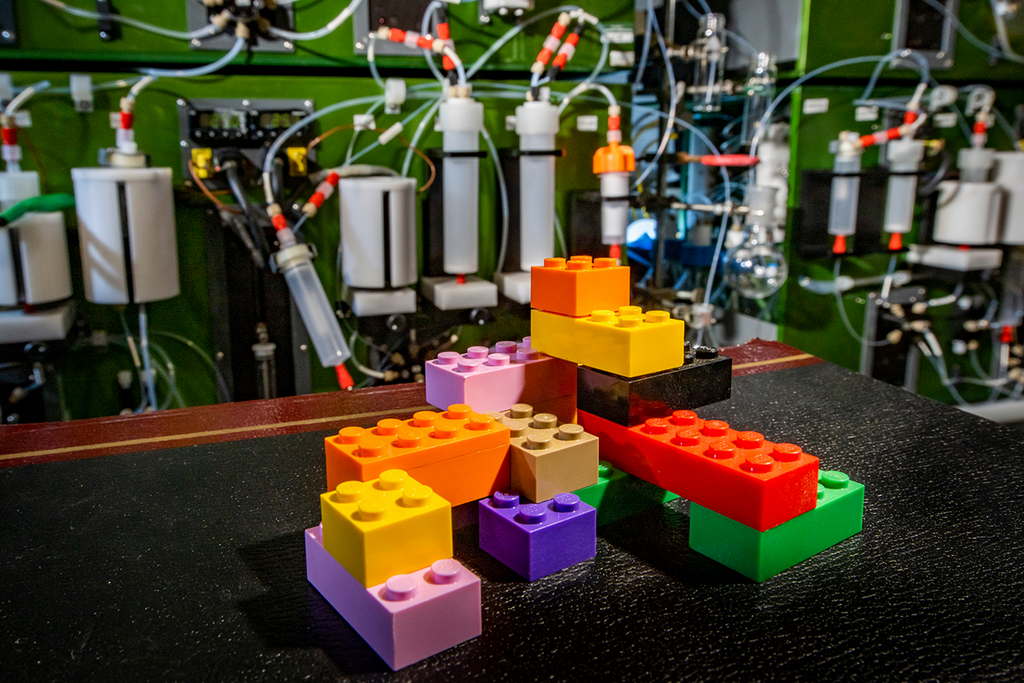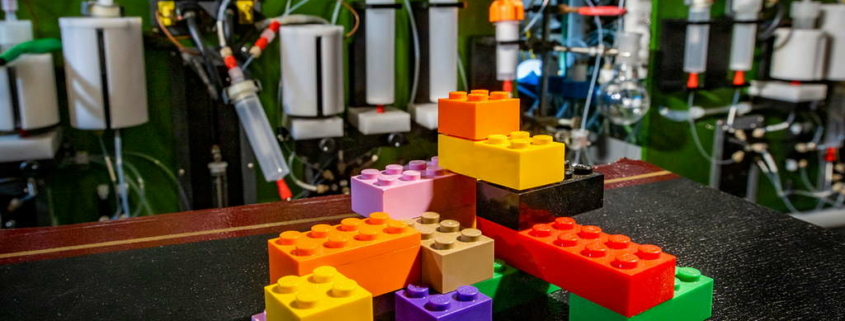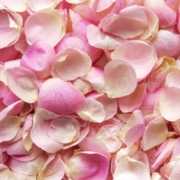Are There Perfumes Without Chemicals?

For centuries, perfumes or scents have been an integral part of our culture, alluring our senses of smells and evoking our memories. However, in our modern society as we have become more conscious of the chemicals we use daily, the term “chemical-free” has arisen.
“Chemical-free” is a buzzword nowadays and is being used more and more, especially in the perfume industry. You might have seen it on social media platforms and even on the packaging of perfumes or other cosmetics. But what exactly does “chemical-free” mean?
In this article, we will explore whether there are perfumes without chemicals in the real world. But before we get started it’s important to learn the basics of chemicals a little bit more. So, let’s dig a bit deeper.
Table of contents
-
What does “chemical” mean and where did it come from?
-
The reality of chemicals
-
What is a chemical in perfume?
-
Are there perfumes without chemicals?
-
Some potentially toxic chemicals in perfumes
-
Safe and healthy chemicals in natural perfumes
-
What are clean perfumes?
-
Final words
What does “chemical” mean and where did it come from?
The term “chemical” came from the noun “chemistry” which refers to the study of composition, interactions, and properties of a substance. The word evolved from the medieval Latin sound “chemicus” which is related to the earlier Arabic word “Al-Kimiya”, which refers to the preparation of the Elixir by the Egyptians. The Arabic root “kimia” comes from the Coptic “khem” which alluded to the fertile black soil of the Nile delta.
The reality of chemicals
Chemicals are the building blocks of everything in the creation. Every substance, including natural ingredients, is made up of chemicals. The air you breathe is composed of chemicals, the water you drink is composed of chemicals, and even you yourself are a composition of chemicals. Chemicals can appear in both forms, either naturally occurring or man-made.
However, we will need to differentiate between man-made synthetic chemicals, that are found to be toxic and harmful, and those yielded from natural origins, that are found to be environment friendly, as well as beneficial for human well-being.
What is a chemical in perfume?
When it comes to perfumes or scents, a chemical refers to any ingredient or component used in the perfume composition or formulation. These chemicals can be of two types – either naturally occurring derived from natural sources or man-made synthetic molecules produced in the lab. These chemicals play a key role in providing stability, aroma, and overall characteristics in the perfumes.
Are there perfumes without chemicals?
There are no perfumes without chemicals since, in the real sense, everything, including perfumes, contains chemicals whether they are derived from natural sources or man-made. “Chemical-free perfume” doesn’t make any sense because to be chemical-free means it is composed of nothing which, in reality, cannot be.
In the field of “clean” living or green beauty, there has been a lot of marketing hype that has taken over, often called “greenwashing”. The term “chemical-free” is one such advertising hype we should be aware of. If you see “chemical-free” on the perfume’s label, it’s nothing but an advertising technique, which says, in reality, it doesn’t exist.
However, what we will need to consider is that all chemicals aren’t good, healthy, or safe for human use. This is the reason why many people are turning to natural perfumes that do not contain man-made synthetic chemicals that have been frequently found to be toxic and harmful. This ensures a safer experience for human society as well as the environment.
Historically, perfumes or scents were always composed of raw materials derived from natural sources, including both natural flora and fauna. Since the time of ancient Rome, India, and Egypt natural perfumes and scents were popular and also were highly prized. They were from 100% authentic natural sources.
It was the 1930s when synthesized perfumes were first introduced. Synthetic chemicals are easily available and very cheap compared to natural ones.
Today, the perfumes you purchase from glamorous brands are virtually composed of lab-made synthetic chemicals. But a decent amount of modern research shows that repeated exposure to these man-made chemicals may cause serious damage to the health of humans, animals, and the environment.
Some potentially toxic chemicals in perfumes
These are some potentially harmful chemicals you should avoid in the perfumes that you use on a daily basis:
White musks or synthetic musks – these chemicals imitate the scents of real musk in fragrances. Research suggests that these chemicals can easily accumulate in the human body and in the environment, which in turn can produce a huge detrimental effect on humans and marine life.
Phthalates – these chemicals are synthetically produced from petroleum and are typically used in perfumes as fixatives, meaning to help the aroma last longer. These chemicals are found to be linked with various serious health concerns, especially birth defects and hormonal disruptions.
Parabens – these synthetically produced chemicals are widely used in medicines and cosmetic products like perfumes. Typically they are used as preservatives. They are found to be associated with hormonal imbalances in the human body.
Benzophenone – this synthetic chemical is typically used to conserve scents from UV light damage. Modern research has classified this chemical as a potential hormone disruptor. It may also trigger allergies in sensitive people.
Formaldehyde – though formaldehyde is not directly added to the composition of perfumes, certain preservatives release this dangerous element as a by-product. It’s a known respiratory irritant as well as a carcinogen.
Safe and healthy chemicals in natural perfumes
What chemicals are safe for human health? Natural chemicals, of course. Over the years, human bodies have evolved through interactive harmony with nature and natural chemicals are thus safe and healthy for human health as well as the environment.
Essential oils – derived from various parts of plants, essential oils offer a wide range of natural aromas. Extraction methods such as steam distillation and cold pressing are used to extract the oils so that the beneficial properties of the plants can remain intact in the oils. Essential oils such as bergamot, lavender, and rose offer charming fragrances while promoting emotional well-being and relaxation.
Carrier oils – carrier oils are used in natural perfumes to dilute concentration and carry the scents. Examples include jojoba, coconut, olive, and almond oils. These oils also help moisturize the skin with other additional advantages like softening and nourishing.
Natural extracts – extracts collected from natural sources like fruits, spices, and herbs contribute to the scents of natural perfumes along with potential benefits such as antioxidants and revitalization.
Natural resins – resins such as myrrh and frankincense have been valued in natural perfumery for thousands of years. They offer rich and exclusive scents while giving grounding and calming effects on the human body, mind, and soul.
Floral waters – these are the by-products of the essential oil extraction process of flowers. They are also known as flower waters or hydrosols. Examples may include rose water and orange blossom water. They provide delicate fragrances and soothing effects.
What are clean perfumes?
We often hear the term “greenwashing in the clean movement”. So, it’s important to know exactly what clean perfumes are. In the “clean perfume” industry, it is considered that perfumes are made up of “safe synthetics”. That means synthetic chemicals that haven’t been identified so far to cause any long-term health hazards.
However, it takes up to 20 years to identify whether a chemical substance has toxic effects and if it needs to be banned. But in these 20 years, these unknown synthetic chemicals are still being used in perfumery. This is the reason why we don’t support the “clean perfume” concept and all our perfumes are made up of ingredients from natural sources so that we can have peace of mind.
Here you can see our Guarantee of Naturality.
Final words
So, is it possible to create “chemical-free perfumes”? We can see now that all ingredients, including natural ones, are made up of chemicals. So, all perfumes are made up of chemicals, and the term “chemical-free perfume” is a misnomer. It’s important to be aware of the discrimination between beneficial natural chemicals and the harmful ones synthetically produced in the labs. By choosing natural perfumes without harmful synthetic chemicals you can enjoy fascinating natural aromas and also can safeguard your well-being and the environment.
























Leave a Reply
Want to join the discussion?Feel free to contribute!